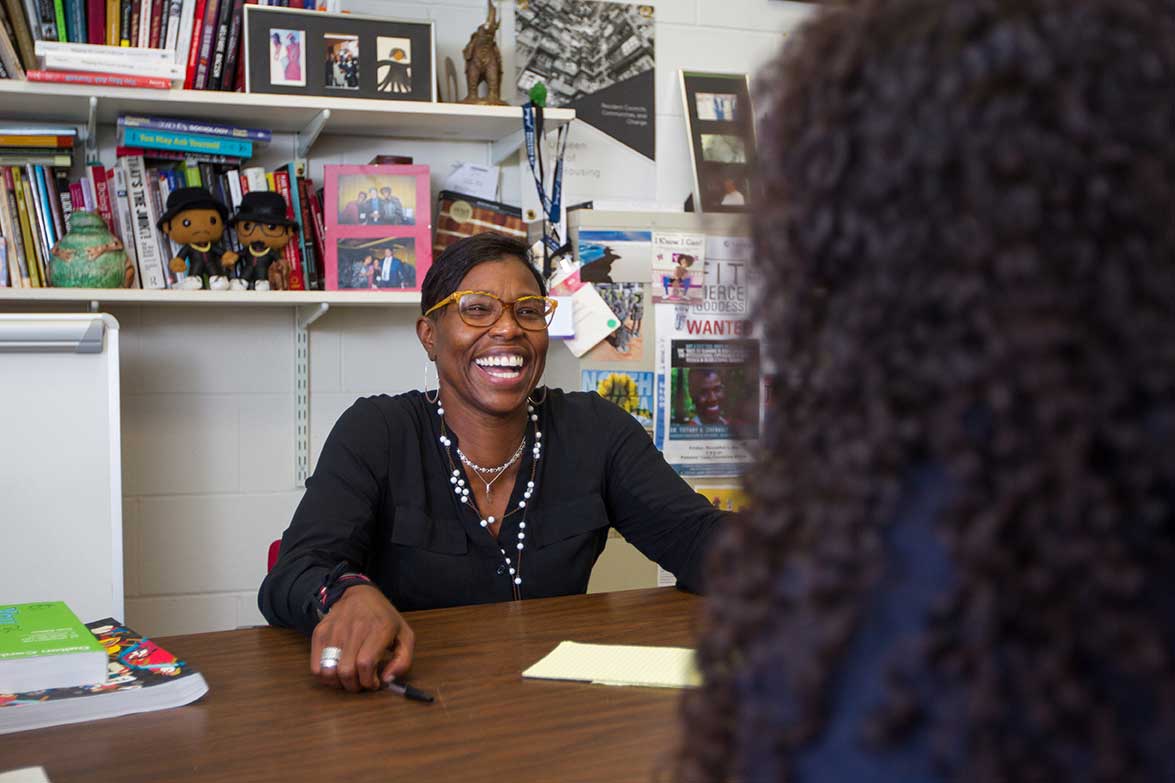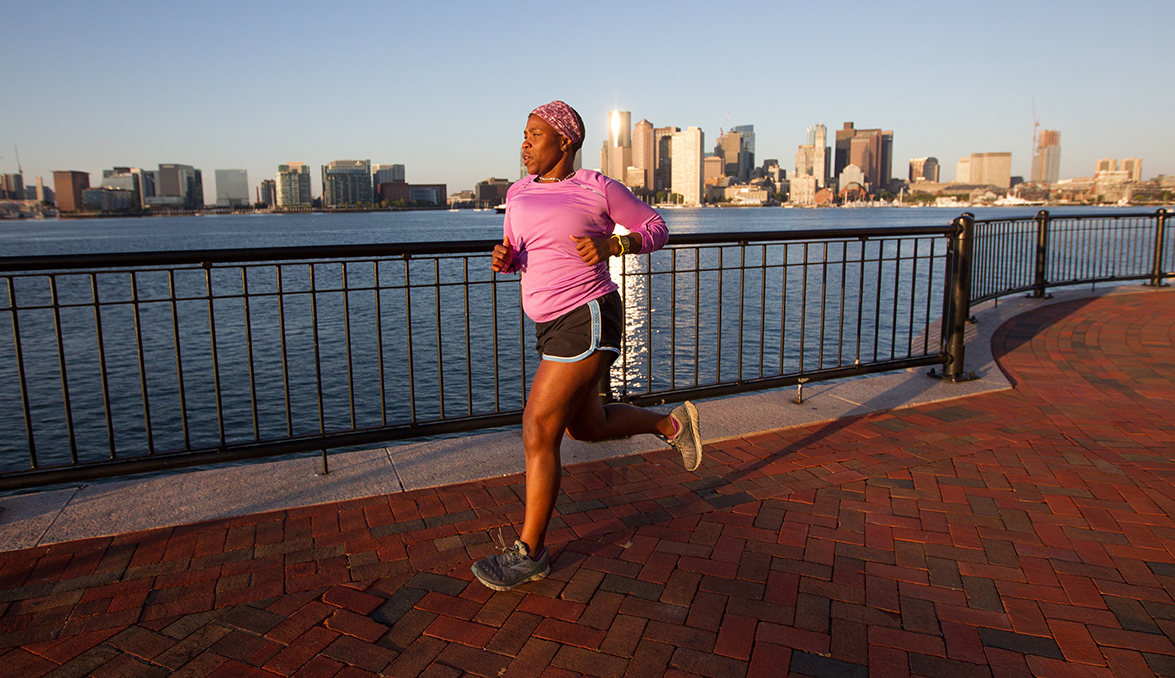Although driven by this loss, Chenault has also gained much in the past six years—a passion for running, a sense of accomplishment, and a novel academic project.
Chenault, AB ’96, a professor of sociology at Salem State University, views her experiences through both a deeply personal and a curious, academic lens, examining how the running world intersects with gender and race by having conversations with black women she meets at races.
As for her original goal, Chenault is on pace to run race number 50 in 2020, four years ahead of schedule. Ohio Women caught up with her to hear her thoughts about the journey so far. Excerpts from her responses follow.
What inspired you to set this 50-before-50 goal for yourself?
What motivated me really was grief. In 2010, my mother lost her battle with cancer. There is no timeline on how to grieve, right? There’s no right way to grieve. And she always taught me to keep your spirit alive and you’ll just be strong. Be this kind of strong black woman and just keep going. And so, for me, after her passing, I just kept going. I never allowed myself time to grieve or heal, which in hindsight now, it’s dysfunctional.
In 2013, a friend of mine asked me to be on her five-mile relay team. The day of the race, I’m like, “What the hell did I get myself into?” But in that moment of doing it, I actually felt something, because I was so numb to the world after my mother had passed.

Tiffany Chenault, AB ’96, visits with a student in her Salem State University office. Photo by Cydney Scott, BSVC ’98
Tell us about your academic research.
I was curious as I would run races and run in my neighborhood that I didn’t see any other black women who looked like me. Or if I would go to a race, I would be one of a few. So, I was thinking, “Well, I know black women do run, just, where are they?” And so, my academic piece is to look at the racialization of this running space … really to understand those intersections of race and gender and running.
There is this perception of running being this white space. And, there is a general racialized stereotype that African Americans run.… So, even though people may say, “Well, it’s a compliment to think that all African Americans or black people are fast.” Really, it’s a negative stereotype that has all kinds of negative implications because if the image is all black people are fast, then for the 42 million of us that really are not, we think that we don’t belong in these spaces and these places.
Have you experienced or discovered anything unexpected?
One thing that I wasn’t expecting is how my body has been racialized.… I’ve had people, 45 states in, make comments on my body while running.… I’ve had people make comments, or asking me, “Oh, do you have Kenyan blood in you?” I’m like, “No, my blood’s from Ohio.”
What has been your favorite race so far?
I don’t have children, so I always say it like, “They’re like kids, each one’s so unique and different.” I would say my most memorable, most challenging race was when I ran the Harpers Ferry Half Marathon in Harpers Ferry, West Virginia, because of all those fricking hills.… I will say this, the only time that there were two races or three races where I’m like, “I have to do this race, it’s a must.” It’s when I ran in Athens, which was my Ohio (race). I had to run at my alma mater.
What’s next?
I know I will keep running, but I’m kind of going through my own withdrawal realizing that I have to slow down.… But what I learned on this journey is that I get pleasure in motivating other people. I always tell my running group that this is me and my crazy. But you know, whatever your goal is, I want to help support it. So, I really am starting to enjoy motivating and encouraging other people in their journeys.
Feature photograph by Cydney Scott, BSVC '98



